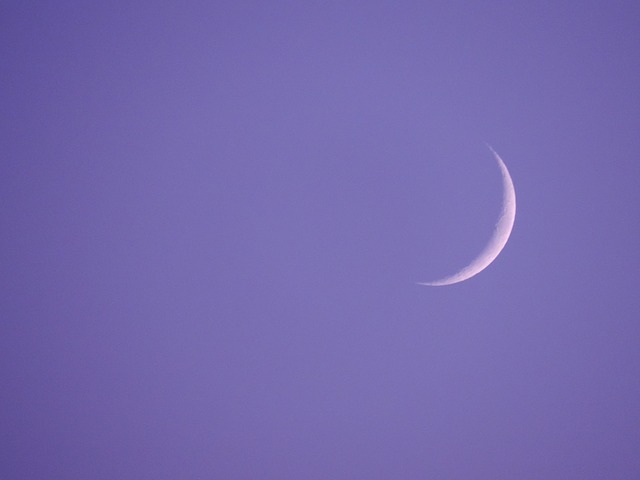How to wish someone a ‘Happy Ramadan’ – Ramadan, as we know is the most sacred of all the months in the Muslim calendar. All over the world, except lands where they cannot be found, Muslim faithfuls observe this period of fasting which last for 30 days.
What really is Ramadan?
The word Ramadan has its origin from the Arabic. The root ramiḍa or ar-ramaḍ, means scorching heat or dryness. Fasting is mandatory for adult Muslims, except those who are suffering from an illness, travelling, are elderly, pregnant, breastfeeding, diabetic, chronically ill or menstruating. The announcement have been issued declaring though, that Muslims living in the regions with natural phenomena such as the midnight sun or polar night should simply follow the timetable of Mecca. Although, it is a more commonly accepted opinion that Muslims in those areas should follow the timetable of the closest country to them in which night can be distinguished from day.
The Beginning of the Ramadan Fast
Hilāl (which is the crescent) is typically a day (or more) after the astronomical new moon. Since the new moon always herald the beginning of another month, it is therefore safe for Muslims to estimate the beginning of Ramadan.
Night of Power (Laylat al-Qadr)
The Arabic word ‘Laylat al-Qadr’, translated to English simply means “the night of power” or “the night of decree”. It is widely considered the holiest night of the year. This night is one which Muslims believe the first revelation of the Quran was sent down to Muhammad. They have a popular belief stating that this particular night was “better than one thousand months [of proper worship]”, as stated in Chapter 97:3 of the Qu’ran.
Also, generally, Laylat al-Qadr is believed to have occurred on an odd-numbered night during the last ten days of Ramadan, which is the night of the 21st, 23rd, 25th, 27th or 29th. The leading Elders’ Community ‘Dawoodi Bohra’ believes that the 23rd night is laylat al Qadr
End (Eid al-Fitr and Eid prayers)
The holiday of Eid al-Fitr signifies the end of Ramadan and the beginning of the next lunar month, which they call ‘Shawwal’ This first day of Shawwal is called Eid al-Fitr. This may also be as a reference to festivities upon the completion of having endured Ramadan successfully and coming back to the normal disposition of being able to eat, drink and resume intimacy with spouses during the day.
Fasting: . Fasting is said to shun the heart away from worldly activities. Its purpose is to cleanse and purge the soul by freeing it from harmful impurities. Ramadan also makes the Muslims cultivate how to confidently/conveniently practice the sacred acts of self-discipline, self-control, sacrifice, and empathy for those who are less fortunate; thus encouraging actions of generosity and compulsory charity. It is mandatory for Muslims to start fasting on attaining puberty, provided they are healthy and sane, and have no form of disabilities or illnesses.
As many Muslims with medical conditions may insist on fasting to satisfy their spiritual needs, although this is not recommended by the hadith, professionals should therefore, make it a point of duty to closely monitor these individuals as they make true of their determination to persist with fasting. Those who were unable to fast still must make up the days missed, later.
Charity: Charity is an important pillar in Islam, and its emphasis is made more so during Ramadan. Many may make the decision of using this time to give a larger portion, if not all, of the zakāt that they are obligated to give. Giving out a larger portion of sadaq nis also common this season, this is so as to maximize the reward that awaits them at the Last Judgment.
Nightly Prayers: this which can be named as ‘Tarawih’ refers to extra prayers performed by Muslims at night in the Islamic month of Ramadan. They are absolutely not compulsory, this is contrary to popular belief though. Meanwhile, some Islamic scholars maintain that it can categorized as Tahajjud (night prayer), prayer which is shifted to post-Isha’ for the ease of believers.
Recitation of the Quran: In addition to the fasting exercise, Muslims are also admonished to read the entire Quran. Some Muslims perform this entire feat by means of special prayers, called Tarawih. Every night of the Ramadan month, these prayer sections are held in mosques, during which a whole section of the Quran (which is 1/30 of the Quran) is recited in its course. Thereby, the aim is achieved; the entire Quran would be completed at the end of the month. Although it is not required to read the whole of the Holy Book in the Tarawih prayers, it is definitely not uncommon.
Is Ramadan at the same time every year?
The accurate date of Ramadan changes every year. This is due to the fact that Islam uses a lunar calendar; the implication of this is that each month begins with the sighting of a new moon. As lunar months are shorter than the solar months used everywhere else, Islamic holidays begin on different days of each year. Many Muslims insist on the local physical sighting of the moon to mark the beginning of Ramadan, others use the approximately calculated time of the new moon or the Saudi Arabian declaration to determine the start of the month. Well, it is a unique fact that each year, Ramadan begins about eleven days earlier than in the previous year.
There are some traditions associated with this culture among them, which will be shared here.
10 facts about Ramadan
1. Muslims faithfuls all over the globe, with no regard to nationality, ethnicity, race or colour take full part in fasting for the entire month of Ramadan:
They are not to eat or drink as soon as the sun rises until dusk all through the month. They are also supposed to stay away from uncleanness and every other worldly pleasure.
2. The new moon determines the start of Ramadan:
The commencements of Ramadan usually vary in different places, as majority still rely solely on seeing the new moon with the naked eye. The date of commencement surely differs annually, as Islam is basically depends on lunar calendar, which do not match up with the gregorian calendar of the secular world.
3. Ramadan fast is one of the five pillars of Islam:
This exercise is another of the major religious belief and practices in Islam. The other four pillars on which this religion is made up of are ‘Salat (prayer)’, ‘Shahada (an affirmation that there exist no other deity besides God and his only true messenger prophet Muhammed)’, ‘Zakat (charity)’ and ‘Hajj (embarking on at least a once in a lifetime pilgrimage to Mecca)’
4. The first verses of the holy book was revealed during Ramadan:
It is a widely known knowledge that the opening verse of the holy book of Islam, the Qur’an, was revealed by Allah during the month of Ramadan.
5. Ramadan’s Purpose:
Throughout Ramadan, people fasting are to require abstaining from food, drinks and other pleasures from dawn to dusk. They are also supposed to focus their mind on prayer, purity, spirituality and charity. Fasting serves as a reminder of the importance of self-control and empathy with the suffering of the poor and Ramadan fasting regulations help to cleanse and purge the body and mind of all forms of uncleanness.
6. Exclusion from the fast:
Exempted from this exercise are pregnant women, breastfeeding mothers and the physically and mentally ill. Individuals who are travelling, are engaged in hard and strenuous labour and women on their period are allowed to skip some days but they have to make up for the days missed of course.
7. Children are not obligated to fast:
It is not a must for children to fast until they reach puberty but some diligent ones may choose to observe it in preparation for their adulthood.
8. People fasting only eat before the sun rises and after the sun sets:
Both the meal taken before sunrise and after sunset has names by which they are called. The former is known as ‘Suhoor’ and the later, ‘Iftar’.
9. Breaking the fast unintentionally attracts no penalty:
Individuals are encouraged to discontinue their Ramadan fast if it threatens their overall health also.
Eid ul Fitr
This is a large festival usually celebrated to mark the end of Ramadan, it commences the moment the new moon is sighted. Muslims hold big celebrations with family and friends, with the preparation of large meals and donation to charity so that poor people can also have a part in the merriments.
How to wish someone a happy Ramadan
Muslims hold the belief that Ramadan is filled with blessings which has to be shared with one and all. It is only right to wish them well at the beginning of the month. Besides the general saying of “Ramadan Mubarak,” another traditional Arabic greeting is “Ramadan Kareem” (Noble Ramadan). If you’re feeling particularly eloquent and want to make a little display of your eloquence, you may choose to wish your friends well though, by saying “Kul ‘am wa enta bi-khair,” which means “May every year find you in good health.”
Some expressions are also used to wish people well in addition to the known ones of course. One of the most common is, “As you fast and offer prayers to Allah, may you find your peace and happiness. Have a peaceful and happy Ramadan!” Or the greeting may be simpler, such as “Wishing you all the blessings of the holy month.” The words are made more important by the intent and compassion behind them.
What you should and should not do during Ramadan
The difference it has with the Christian’s Lent (fasting exercise) is that Muslims do not have to abstain from specific foods during Ramadan, only pork and alcohol. And these are prohibited already.
Ramadan is a time of total purification of the soul. It is a time when muslims should do good deeds, which might be by visiting the sick, giving to charity and even donating clothes and food to the less priviledge.
You can shower
This is not an uncommon misconception! Of course, water won’t enter your body through some sort of magical osmosis. As long as you take the precautions of not to swallow water, you can definitely shower.
You can’t smoke
Smoking breaks the fast as it is ingested through your mouth. This also applies to every other drug, whether it is being inhaled, snorted or injected.
You can’t take medicine
This is more about popping PCM or Aspirin, if you have a headache, or taking Septrin, when you feel bloated (told you not to eat that last samosa!). If you’re sick or on a stable medication for a long term condition then you’re exempted.
Ramadan is not just about fasting from food; it’s also a fast from bad deeds. It’s supposed to make you self-conscious and self-aware, so think about everything that comes out of your mouth and ask yourself if it’s something good. Strive to avoid lying, gossiping, backbiting, being rude, swearing, and the like.
You can’t chew gum
For those who always want to make a grab at a stick (or five) of gum, and as much as tempting it may seem to do just that, so as to get rid of that fasting breath, you must not as it’ll break your fast.
You can’t have sex
Again, this only applies to during the fasting hours, not during the night.
What does not break the Ramadan fast
1. If one mistakenly forgets that he is on the fasting exercise and eats or drinks unconsciously, he/she should complete his/her fast.
2. Vomiting unintentionally.
3. Teeth and mouth brushing.
4. Taking injections and other medical intra-venous which might not be nutritional.
5. Swallowing the unavoidable like one’s saliva, street dust, and smoke. This does not break the fast.
Fasting not only has physical benefits but also moral and social. It was made compulsory so that Muslim may be pious, fearing and God-conscious. This is the reason every muslim faithful should make sure to take part in it every year without as much as to missing out on a day. For in this is the ultimate reward of every devout and faithful follower of the Prophet Mohammed (pbuh).
Now that you know how to wish someone a happy ramadan, what will you do about it?





1 Comment
iftar ki dua
July 2, 2024 at 3:23 pmNice Article , Keep It up !!!